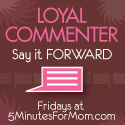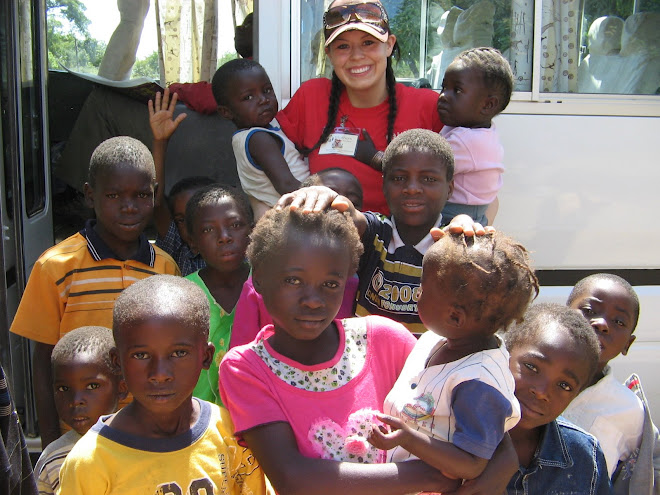
Lili De Hoyos Anderson is a first generation American. Her mother is French and her father is Mexican. She was born in a little border town in Texas, but her family soon moved to the Midwest, where she grew up in Michigan and Indiana. When she started high school, both her parents began teaching at BYU, so the family moved to Provo and she graduated from Provo High School.
Lili attended BYU, married her high school sweetheart, Chris Anderson, and graduated in Sociology just before the birth of their first child. Chris is a social worker with LDS Family Services and is currently one of two full time Family Services clinicians at the Missionary Training Center in Provo. After almost 20 years of being a full-time homemaker, Lili returned to school to complete a Masters in Social Work degree at UNLV. She is a Licensed Clinical Social Worker and has a full-time private practice in individual, marriage and family counseling. Later, Lili completed her PhD in Marriage and Family at BYU and for several years taught part-time there for the School of Family Life.
Lili and Chris have eight children. They are affectionately referred to as the "Alphabet Kids" because their names are Adam, Bethany, Caitlin, Dominic, Eden, Faith, Graydon, and Harper (although when she was expecting this eighth child in twelve years, she seriously considered naming it Hallelujah). The Andersons have 16 grandchildren and are expecting two more in the Spring.
Lili is an avid reader. She also enjoys sewing, music, quilting, making stained glass windows, and photography—none of which she currently has time for. She has published in the ENSIGN and in various books and journals. She wrote a book, Family Foundations, in response to student requests when she taught part-time for BYU in the School of Family Life. That book is about healthy individual adjustment and marriage and family principles. Her new book, Choosing Glory, was just released this August. She presents often at professional conferences and to church groups.
The Anderson family has lived in Oklahoma, Chicago and for 15 years in Las Vegas, where they mostly raised their family. In Las Vegas, Lili taught both early morning seminary and two Adult Religion classes for several years. Her greatest love, after the gospel and her family, is teaching.
The Andersons live in Draper, Utah.
Here is my interview with Lili:
M.B.: What made you decide to write Choosing Glory?
Lili: I wrote this book in response to multiple requests. Choosing Glory is an expansion of a life perspective that I have been teaching and using in my therapy practice for many years. Many people were asking me, “Why haven’t I ever heard this perspective before?” and I just wanted to make this information available to as many people as possible.
M.B.: What is the book about?
Lili: Choosing Glory considers the doctrine of celestial, terrestrial, and telestial realms, suggesting that—here on earth—we deal with all three kinds of individuals, behaviors, institutions, and ways of life. The book applies a three realms perspective to daily choices, dating, marriage, parenting, stress, and progression, offering concrete tools to help us find safety from telestial elements that threaten our peace. A secondary, but also very important, message of the book is that we were meant for more than a good terrestrial life. The book invites each of us to recognize that every day we are—in fact—choosing to embrace a telestial, terrestrial, or celestial life and glory. Talking about a 3 realms life perspective may seem a little dry, but I think readers will very quickly see applications to their everyday lives and relationships.
M.B.: Can you give us some examples?
Lili: I’ll give three. First, the book discusses how important it is not to accept telestial behavior in our close relationships—especially in marriage. I explain that tolerating hurtful, destructive behaviors is not really charity but victimhood. There is a whole chapter on that subject. Second, the book gives some examples of how and why parenting is more challenging today. For instance, many parents wonder why their children are so disrespectful. They say, “I would never have dared treat my parents the way my children treat me.” I explain that our society—as prophesied—is becoming increasingly telestial and that parents need to be more proactive in creating and enforcing terrestrial behavior standards that previous generations of parents could take for granted that society would teach their children. Third, I talk about using the terrestrial level as a protection against telestial troubles in several situations, including, for instance, in selecting a safe marriage partner.
M.B.: So this book is intended to really help people?
Lili: Yes. The primary message of the book is that we don’t have to become or to remain victims to the destructive, painful, telestial elements around us. The secondary message is that we were born for glory—celestial glory. We shouldn’t settle for, or get stuck, in just a good, terrestrial life.
M.B.: Who is your book written for?
Lili: I really believe there are principles in this book that will have application for everyone. It is written for an LDS audience and I use LDS vocabulary and reference a lot of scripture and statements from the general authorities.
M.B.: How long did it take you to write the book and what was your writing schedule like?
Lili: Because I have a big family—the eight kids are all grown, but there’s still plenty of involvement there—and a full time private practice in Individual, Marriage, and Family Therapy, it wasn’t easy to find blocks of time to write. A lot of the book was written in 15 and 20-minute increments. In fact, because I didn’t have time to review what I had written last before writing more I started to worry that the writing might be too choppy and unconnected. One of my daughters-in-law, Sara, came to my rescue, volunteering to read through the chapters as I finished them to be sure they were coherent. It was a huge relief to hear they were making sense! There were a couple of times that I blocked off a full week, meaning that I told my scheduling assistant not to schedule any client appointments, so that I could have a lot of writing time and that helped, too. In fact, I stayed at a resort in Park City for those two weeks and told them I needed a room with a good view of the mountains so I could work on my book. I’m happy to say they obliged.
M.B.: Did you ever have writer's block? If so, how do you deal with it?
Lili: Well, for me, writing is hard work but I don’t think I experienced writer’s block in the way you might when creating a story. I think more challenging for me than writer’s block is that I could have kept writing on this topic forever. There is always another idea, clarification, or example to share. I had to finally decide that I was done and start saving those ideas for the next book.
M.B.: So will there be a next book?
Lili: Definitely. As stressful as it can be to get a book finished and into print, I’m actually feeling the need to hurry and get Christmas taken care of so I can start on my next book.
M.B.: What will it be about?
Lili: The next book will be on how to establish and maintain healthy emotional boundaries. So many good people end up in relationships where they are being chronically hurt or exploited. My next book will discuss how we can stop being victimized and take personal responsibility for getting into a safe place and into safe relationships without turning into victimizers ourselves.
M.B.: Will there be other books after that?
Lili: I hope so. I’d like to write books on marriage, parenting, and a book specifically for mothers. I’d also like to write a book on repentance and forgiveness. Maybe a few others.
M.B.: Do you need absolute quiet to write? Do you listen to music when
you are writing?
Lili: Quiet works best, but once in a while—when working on easier segments of the writing—I can have soft music in the background. If I start singing along, though, it doesn’t work too well.
M.B.: Who has made the greatest difference for you as a writer?
Lili: My husband. He provides unfailing, and apparently inexhaustible, love and support in this and every other part of my life. He listens; he adds understanding and insight; he absorbs the overflow of my intensity; he gets me to the places I’ve committed to be; he uses his many skills, and acquires more, to advance my projects. I really don’t know how I would survive without him.
M.B.: Do you use a critique group during the writing process? Why or why not?
Lili: Something quite wonderful happened in my process of completing the book. I met David Brake and Holly McCallister of Content Connections. Content Connections is company with tools for testing and developing written works. They volunteered to set up an online review for my book. About 70 readers read either a few chapters or the complete manuscript and gave feedback. I found it very useful and made some significant organizational adjustments to the book in response to the feedback. I will say that it takes some courage to put your work in front of reviewers, especially people who know nothing about you or your work, but it was a very valuable process for me.
M.B.: You’re an LCSW and a Ph.D. Can you tell us what those credentials really mean?
Lili: LCSW means Licensed Clinical Social Worker. That’s the licensure that is available after getting a masters in social work (MSW) degree. The MSW degree and the LCSW licensure allow me to do individual, marriage, and family therapy. The Ph.D. is for my doctorate in marriage, family, and human development.
M.B.: Had you always planned to be a therapist?
Lili: Not really. That is, if you had asked me what I planned to do when I was in high school, I probably would have said that I wanted to get a Ph.D. and teach at the university level, like both my parents. But during those years—which happened to be during the time the Equal Rights Amendment was being debated—I really changed my thinking and decided that if I had the opportunity and if circumstances permitted, I wanted to be a full time mom. That opportunity did come to me and I was full time at home with my kids for almost 20 years. As hard as it is to be a full time mom, I loved it, and I saw myself transitioning seamlessly from mother to grandmother. But life has a way of surprising you, right? I felt a really strong direction—I usually refer to it as “baseball bat revelation” because it felt like I got hit in the head with a baseball bat—to go back to school and get the masters in social work and then the Ph.D. Miracles happened to make all that work out and here I am. In spite of the academic credentials, however, I really believe that most of what I have to share didn’t come from things I learned in a classroom, but from what I learned “in the trenches” of life, by trying to live the gospel in my own marriage and family.
M.B.: Any final words you would like to share?
Lili: I’d like to invite anyone interested to check out my website, lilianderson.com. The whole social media arena has been quite the steep learning curve for me, so it’s taken a while for me to make more effective use of my website, but we’re in transition now to a more active website presence. I will be making regular posts, starting a Q & A (question and answer) feature for individual, marriage, and family adjustment topics, and posting occasional podcasts on related topics.
M.B.: Where can our readers go to find your books and order them?
Lili: The book is currently available on my website, lilianderson.com, at Deseret Book stores, Deseret Book online, and on Amazon.com.











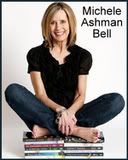
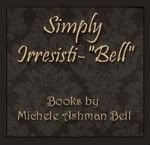





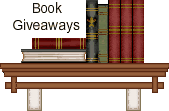

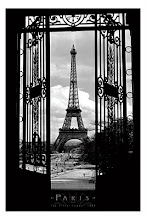

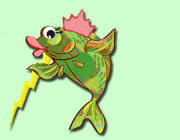











.jpg)





























-page-001.jpg)







.jpg)


